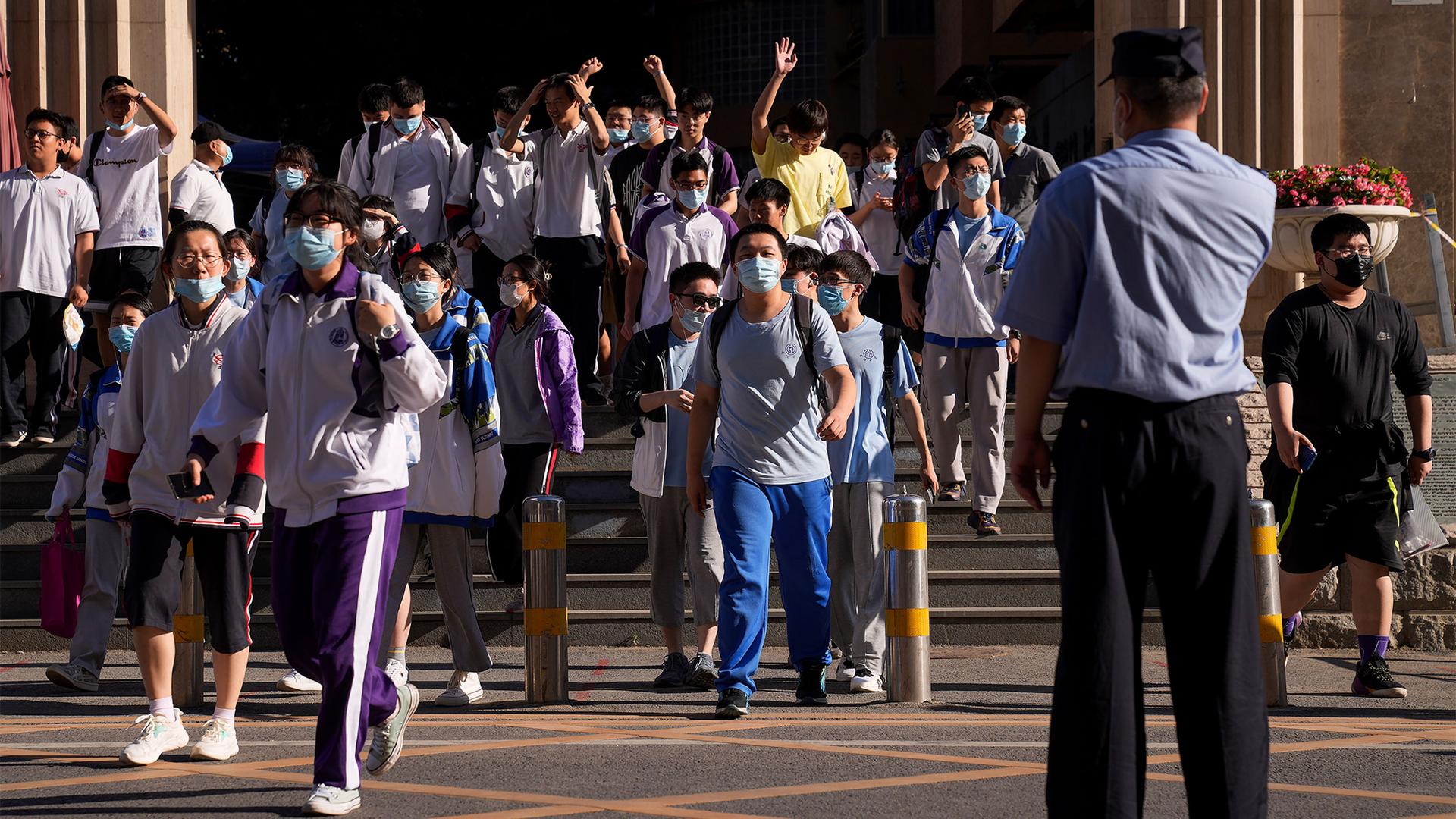It’s exam season in China. The results of the gaokao, China’s high-pressure college entrance exam, were released last week. A record number of students sat for the test this year.
And now, a new TV show is out that turns parents’ anxiety about high-stakes tests into entertainment.
“A Little Dilemma” follows two families who have very different ideas about their children’s education. One mother is obsessed with grades, pushing her son in fifth grade to study at every opportunity. In China, they call this “chicken parenting.”
In one scene, after being pushed to the limit, her son stands up in front of his classmates and their parents and calls his mom out for the mental stress caused by her.
“My mom doesn’t love me, she loves the me that scores 100%,” he says, tears welling up in his eyes.
She answers: “How can you say that? How else could I express my love?”
Related: Kept from foreign universities during pandemic, Chinese students form ‘study pods’ in shared housing
The other mother in the TV series is more relaxed and encourages her daughter’s interests. In China, they call her a “happy education” parent, the kind that tries to remove all the pressure on students to compete.
In one scene, even the more relaxed mother starts getting anxious when her daughter’s grades start to suffer. She cuts a birthday celebration short when she finds out her daughter hasn’t done well on a test. The girl’s grandfather says, “It’s just one test. She’s only in fifth grade.”
“If she doesn’t improve it will be too late for her,” the mom replies. “The high school and college entrance exams are approaching.”
Real-life parenting
Zhao Hui has two daughters in primary school in Shanghai.
“Parents are talking about [the show],” she said, “because we spend so much time thinking about the education system. It was very realistic.”
Hua-Yu Sebastian Cherng, a professor at NYU who studies China’s education system, said the show perfectly captures what families and students are going through.
“They are extra stressed out under this current competition, and so I think this show really picks up on this ethos.”
“They are extra stressed out under this current competition, and so I think this show really picks up on this ethos,” he said.
Related: China now allows 3 kids per family, but many couples say they can’t afford it
But for some parents, the show hits a bit too close to home. Some moms in Shanghai say they don’t dare to watch it.
Zhang Xiao, whose son is in third grade at a public school, said she felt awful watching some clips “where parents don’t want to give their kids pressure,” she told The World, “but end up forcing their kids to do more work in the end.”
Test anxiety is starting earlier and earlier.
Parents are worried about high school, which has a quota that only half of students will test into high school. The government wants more students to go to vocational schools to ensure a steady blue-collar workforce. But many parents see a college degree as a path to a better life.
“I heard the kids in vocational school don’t learn anything,” Zhang Xiao said.
Related: US bans cotton products from China’s Uighur region over forced labor concerns
She worries that her son won’t get into high school, because he struggles as a student. After class and on the weekends, she takes him to a tutoring center to help him finish up his homework and to review. He’s there until 9 or 10 at night, sometimes even later.
“If you can’t keep up, the teacher will call the parents and give them a talking to.”
“I hate seeing him struggle, but there’s nothing I can do,” she said. “If you can’t keep up, the teacher will call the parents and give them a talking to.”
Zhang Xiao held back tears as she spoke. “It’s hopeless,” she said. “It feels like my kid’s whole future is decided by the time he is 10.”
Even though her son is spending hours at a tutoring center, Zhang Xiao calls herself a “happy education” parent.
“I try to take him out to play when we have time, to help him relax.”
“I try to take him out to play when we have time, to help him relax,” she said.
Another parent, Liang Qinghong, has a fourth-grade son at the same school who is doing well academically.
“After school, he’s taking math and English classes,” she told The World. “I’ll start him on German soon.”
She said she has no time to watch the show, but that her son has watched a few episodes.
“He says I’m like the more relaxed mom,” she said. “I joked with him that even the relaxed mom turns into a chicken parent.”
Related: China’s new Silk Road runs through cyberspace, worrying rivals and privacy advocates
Over the past few months, the government has been trying to address the problem of pressure on students.
In April, the Ministry of Education put out new guidelines: Primary students should only do an hour of homework at most each night and get 10 hours of sleep. New regulations restricting tutoring centers will also come out soon.
“Those guidelines are no use,” said Zhang Xiao. The schools haven’t let up on the amount of homework, and the parents keep adding to their kids’ workload outside of class.
Some parents suspect the guidelines are part of the government’s efforts to encourage people to have more kids. But Zhang Xiao said she doesn’t plan on it.
There’s just no time to rest, she said.
UPDATE: A previous version of this story misspelled Hua-Yu Sebastian Cherng. We regret the error.
